
Origin Investments in Bolivia
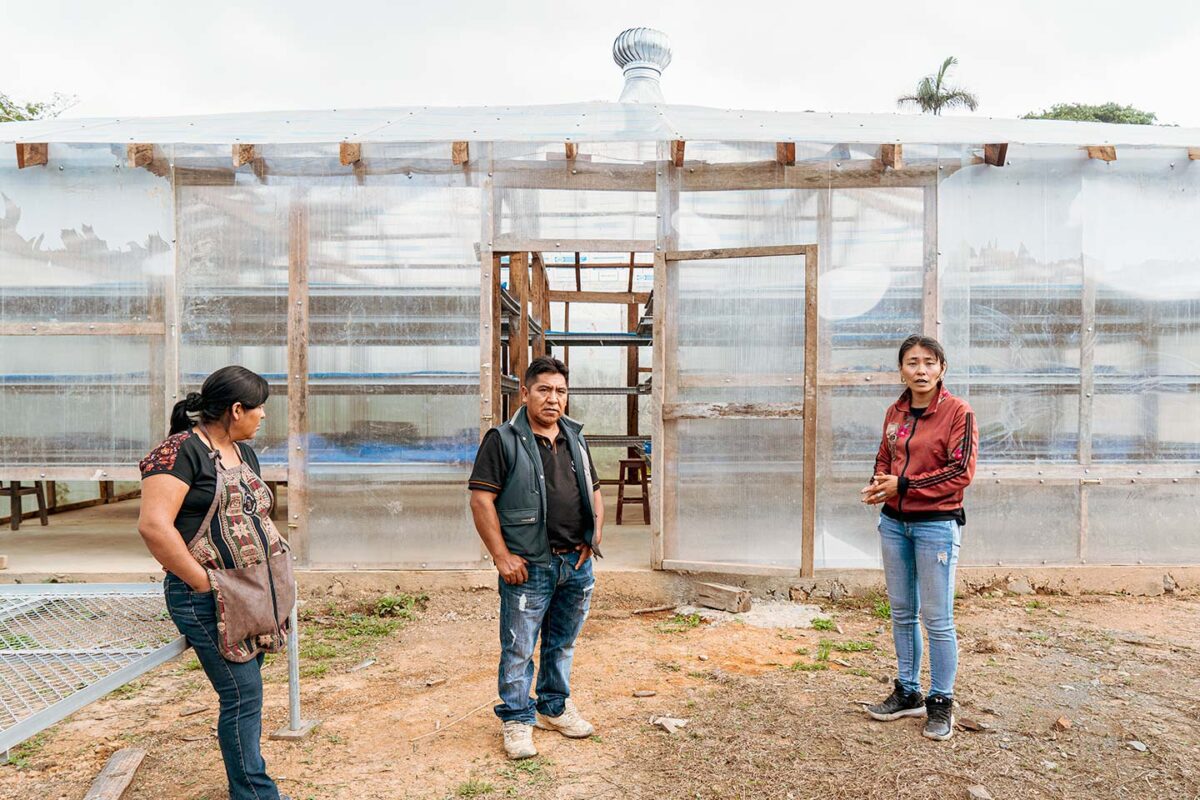
TYPICA is currently conducting a “listing deposit” scheme with a select number of smallholder producers in Bolivia. This endeavor allows TYPICA to support producers who propose their own projects to increase production, improve quality, and establish a sustainable coffee business.
By loaning funds to producers before the coffee harvest takes place, they can securely invest in methods to increase their production or improve the quality of their products without worrying about economic risks. Coffee grown by these producers is offered on TYPICA’s platform as a priority listing, so roasters can purchase their highest quality lots. In this way, the loaned funds are returned through coffee delivery.
Some of the proposals for improving coffee quality have included equipment investments such as the construction of drying beds and warehouses, while proposals to increase production quantity have included funds to hire more coffee cherry pickers or increase agricultural land. Although several of the projects could be completed in a year, some have been proposed to last anywhere from 2 to 5 years until fruition, requiring a strong bond of trust between TYPICA and the producer.
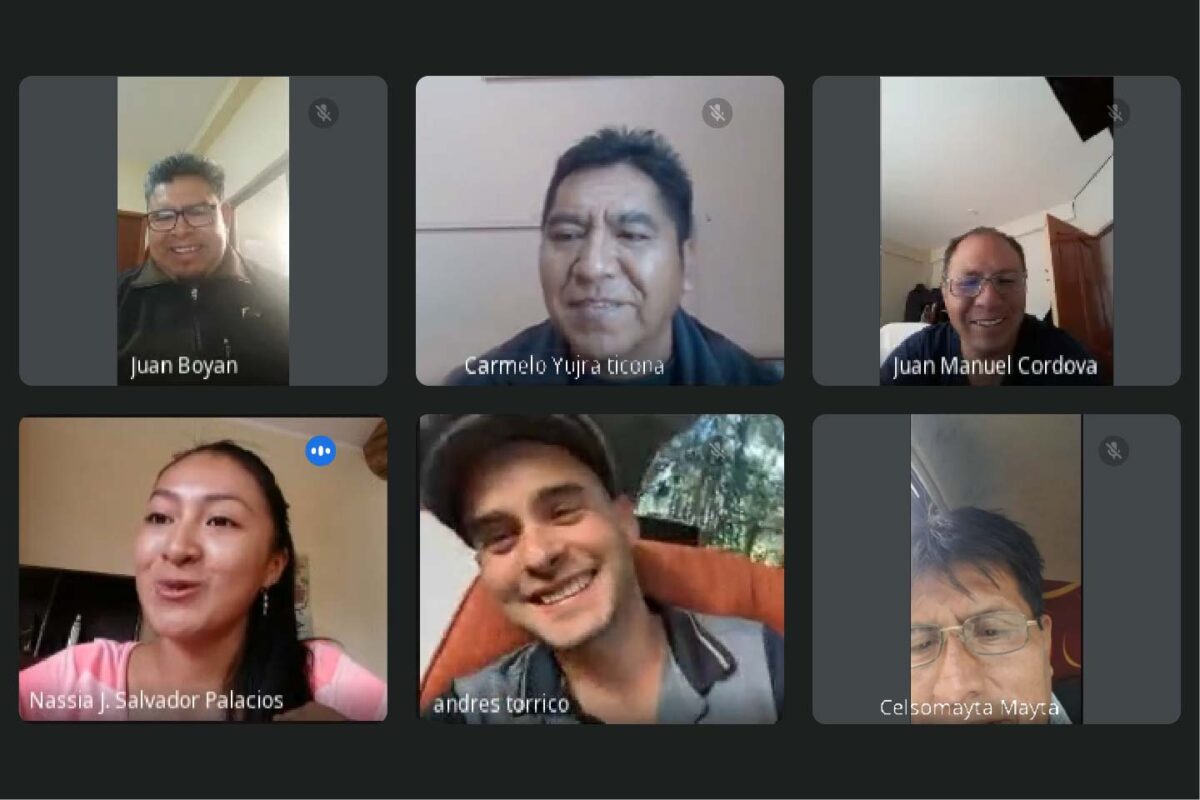
In 2022, the first year of this endeavor, TYPICA invested in eight Bolivian producers. Questionnaires that asked about the implementation status and harvest yield, as well as the project’s influence on the family or community of the producers were conducted as a follow-up. The first online debriefing was held on April 20th, and six of the producers reported on the outcomes of this project.
The reports from the producers are as follows.
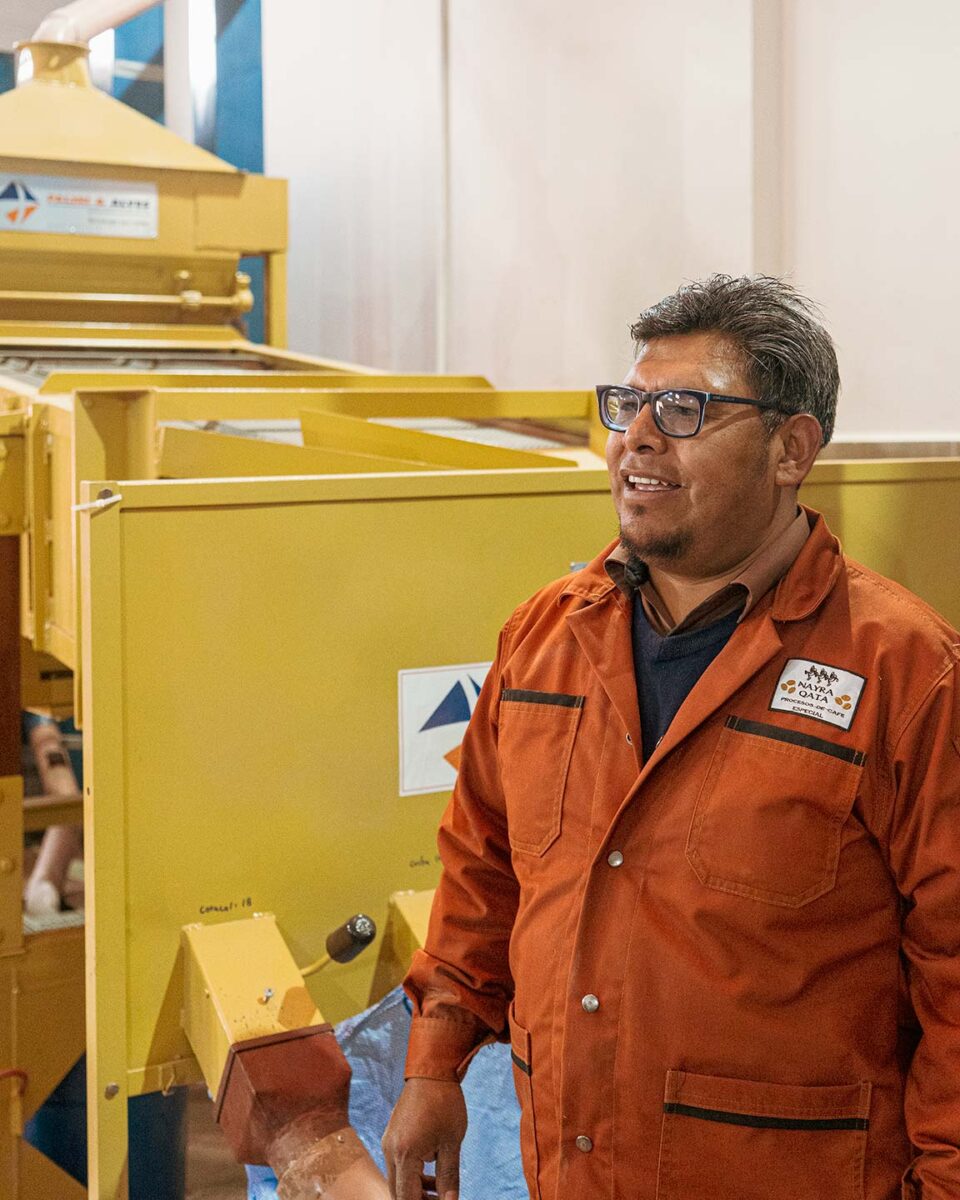
Juan Boyan Guarachi/ Nayra Qata (Processing Facility Operator)
Improving the dry mill’s equipment has made a positive impact. As processing times have been cut down, we have been able to handle producer requests with better flexibility. This has helped increase the reputation of the dry mill in the area, and we have seen even more producers coming to us directly.
We’ve also started offering a new GrainPro (hermetic bags that can be used for storing green beans) rental service for the producers. In Bolivia, one bag costs about 4 dollars, so many of the producers are unable to buy them, but we are renting them at the cost of about 40 to 50 cents per one time use. By using GrainPro bags, the green beans can be stored in better conditions which leads to the improvement of product quality.
One of our biggest accomplishments of 2022 has been the addition of eight more producers/groups. They have all expressed their ambitions to export their green beans through TYPICA. It seems the motivation for this comes from the Bolivian Team attending the Annual Meeting in Japan, as well as becoming aware of TYPICA’s sincere foray into direct trade through social media and the like.
Nayra Qata has already finished paying the producers and maintenance of the dry mill has proceeded exactly according to plan. We will continue to modernize the facilities throughout 2023 and strive to provide producers with further improved services.
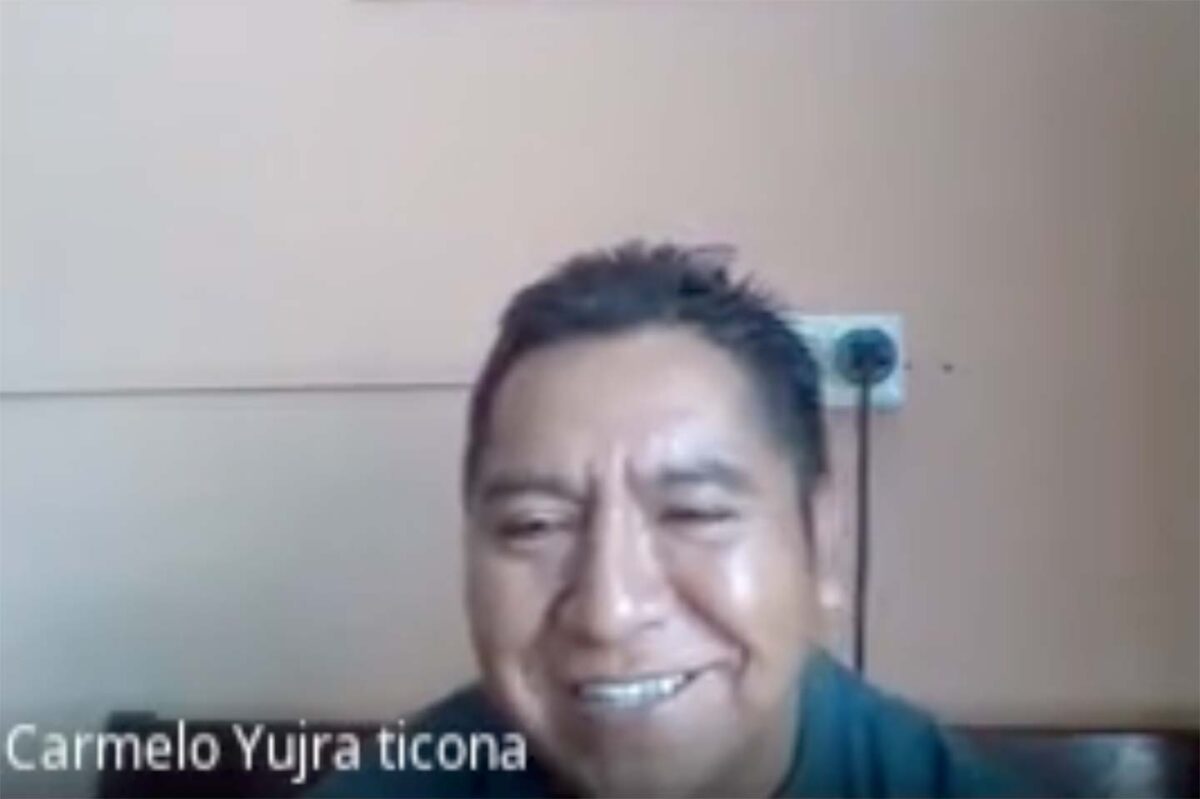
Carmelo Yujra/ Finca Senda Salvaje
Our coffee won the grand prize in the 2022 Presidential Cup (Bolivia’s equivalent of the Cup of Excellence), so I believe that being a part of this investment project has produced excellent results. We were able to purchase building materials that had been difficult to obtain until this point and installed new fermentation tanks and a drying room. As drying plays a major role in the processing of our coffee, having the drying room in particular has increased the quality of our products.
The plans to build a new lab are proceeding on schedule, and we are currently in the process of gathering missing materials. In order to increase our production output, we have started growing new seedlings.
The other day, I had the opportunity to speak to students at a coffee training institute in Caranavi, and I was impressed with how highly motivated they were about being involved in the coffee industry. It could be because word of us visiting Japan has gotten around, but lately we’ve been getting inquiries and consultation requests from producers in other regions as well.
What’s important is to keep an open mind. There doesn’t need to be any secrets in the coffee industry – I’m happy to teach others whatever is necessary. I’ll gladly share the techniques and processes we use with the producers around us because it will allow even more people to experience the joys of delicious coffee. I can’t think of anything better than that.
The thing I’m most grateful for when it comes to being involved with TYPICA, is that I now know where my coffee is going. I’m sure that the community of roasters around the world will continue to grow, and I hope they will discover our coffee and give us even more feedback. We’d be happy to welcome anyone who is interested in visiting our farm.
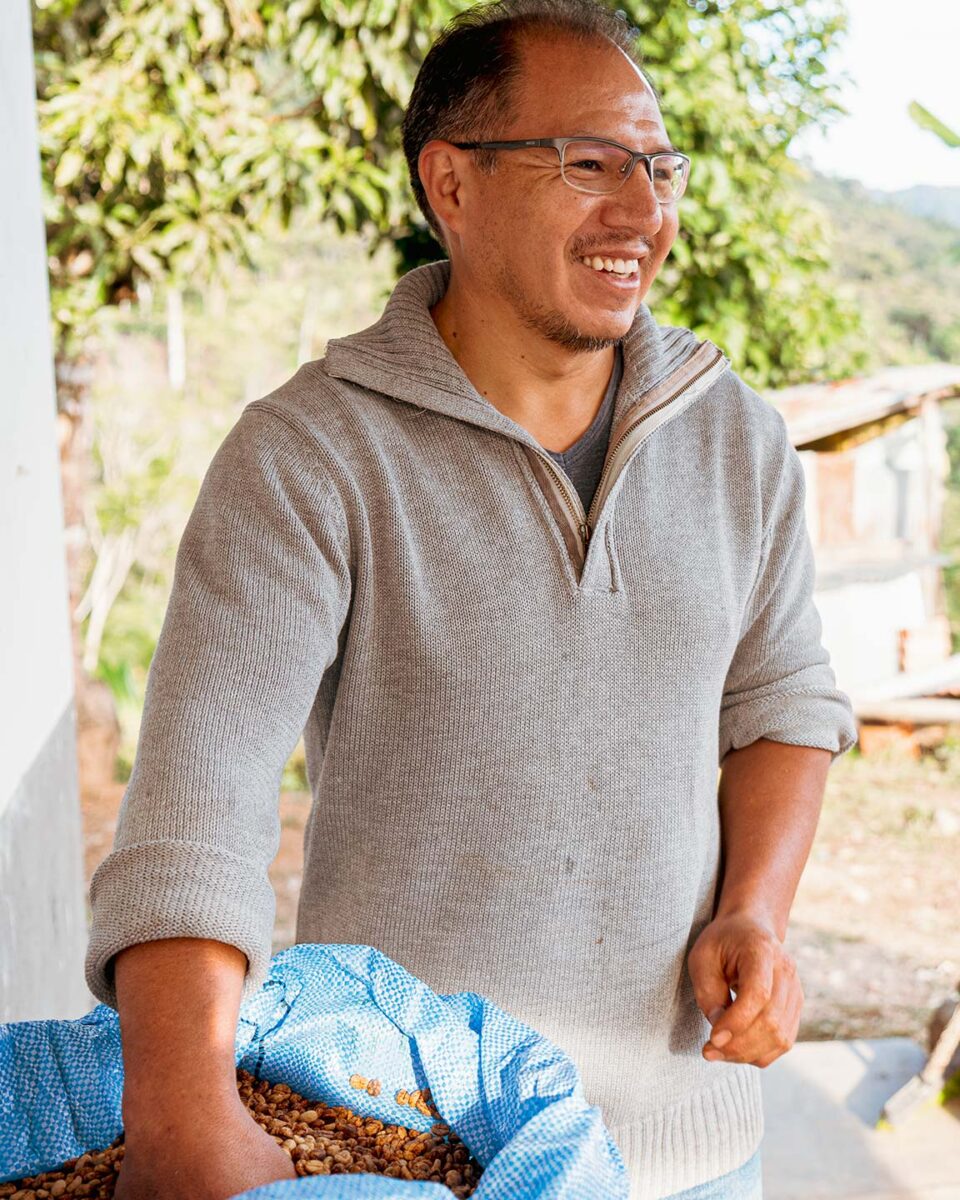
Juan Manuel Córdova Herrera/ Red Honey
We had previously been processing 50% of our cherries as specialty coffee, but in 2022, the first year of this project, we increased that number to 80%. We were able to improve the quality through purchasing drying equipment and other necessary materials.
In 2022, 45% (720 kg) of our yield was sold on TYPICA’s platform. Before that, we’d been selling to local coffee unions or buyers, but it was nice to know where our coffee was going. I’m glad that the value of our green beans is being sufficiently evaluated and sold for a fair price.
The motivation of the pickers working at our farm has increased because they feel they are able to pick “better-quality coffee cherries.” Our goal is to have 100% of our next yield be distributed through TYPICA. The aim is to deliver 2,000 kg of honey, natural, and washed process coffees.
About 95% of our projects have been completed, but the project to purify sewage produced during coffee processing is still ongoing, and we will be continuing to work on it in 2023. We feel that being able to complete these projects as planned is akin to meeting the expectations of roasters. This year, we’d like to build close relationships with roasters from all around the world and create excellent coffee together. To achieve this goal, my wife and I will strive to keep improving our processing techniques.
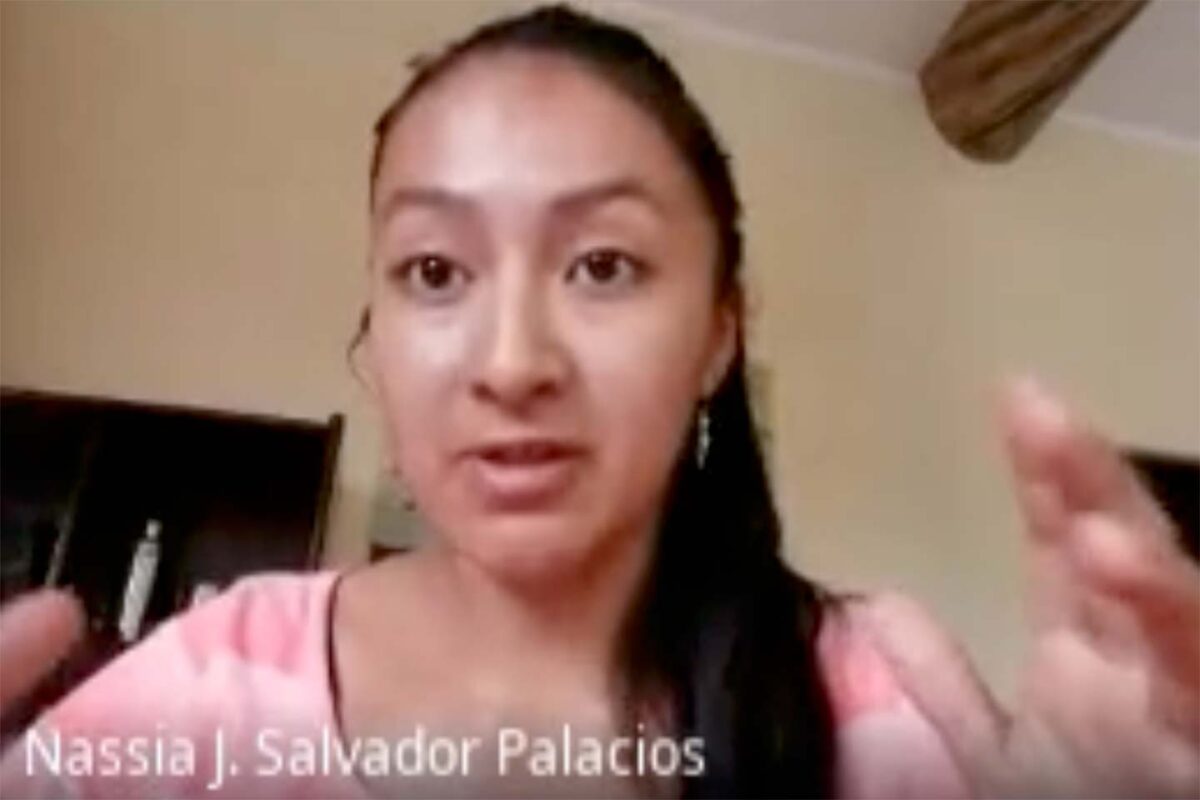
Nassia Jhoselin Salvador Palacios/ Monte Cielo
In addition to buying pulping equipment and a hygrometer, we added a new drying room and fermentation tanks. Our planned project is 100% complete. Even though our export volume was only 181 kg in 2021, thanks to the investment funds, we were able to increase it to 500 kg in 2022. Having a yield that was 2.7 times the previous year’s has become a huge source of motivation for us.
During our first year of partnering with TYPICA our cultivation acreage was 1 hectare. Now it is 3 hectares, and we have plans to expand by an additional 1 hectare. We still have a lot of money invested into us this year, but now that it’s been proven that increased production will lead to increased income, we are excited to move forward with our 2030 goal (of distributing 33% of our Arabica coffee through TYPICA’s platform).
Our aim for 2023 is to create an even more sustainable farm. Since there wasn’t much of a rainy season in 2022, the country suffered from a severe drought that also influenced coffee production. As a risk-reducing measure, we are looking into the possibility of installing an irrigation system.
I have been deeply inspired by the other producers who joined the debriefing session today and will keep all of you and your efforts in mind as I work to meet my goals. Thank you.
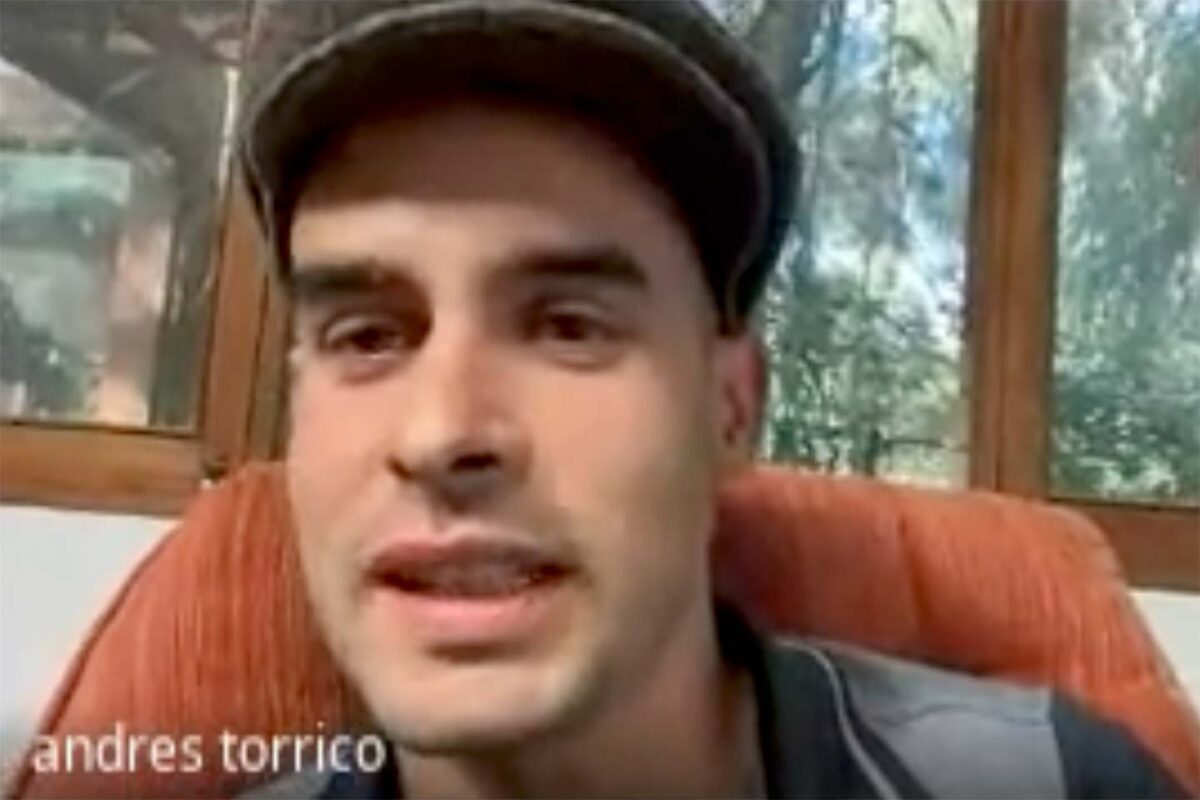
Andrés Torrico Ramírez/ 4 Llamas
Some of the equipment we bought was defective so we’re in the middle of exchanging it, but our project has fully been implemented as planned. I’d like to map out the plans for our farm and submit them to TYPICA so we can take a look at our growth objectives together.
Thanks to attending the Annual Meeting held in Japan, I was able to make the acquaintance of Diego Samuel Bermudez of Finca El Paraiso (a famous coffee farm in Colombia.) Afterwards, we embarked on a joint fermentation project, which has helped me gain a lot of new knowledge.
We added four new producers in 2022. I was very pleased because they produced excellent coffee. Our goal for 2023 is to add even more producers and increase the quantity of microlots that we distribute worldwide. With Diego’s support, we will be able to reach the level where we can stably produce very high quality microlots. We hope to involve our new producers and continue to grow this project.
It’s been an honor to join this debriefing session with the other Bolivian producers and our friends at TYPICA where we can talk about our successes over the year and share our future ambitions. I am so grateful for the connections I have been able to make through working in the coffee industry and believe we can nurture them into relationships that will last 100 years. Together, I wish to ship our wonderful products all over the world and bring recognition to the delicious coffee of Bolivia.
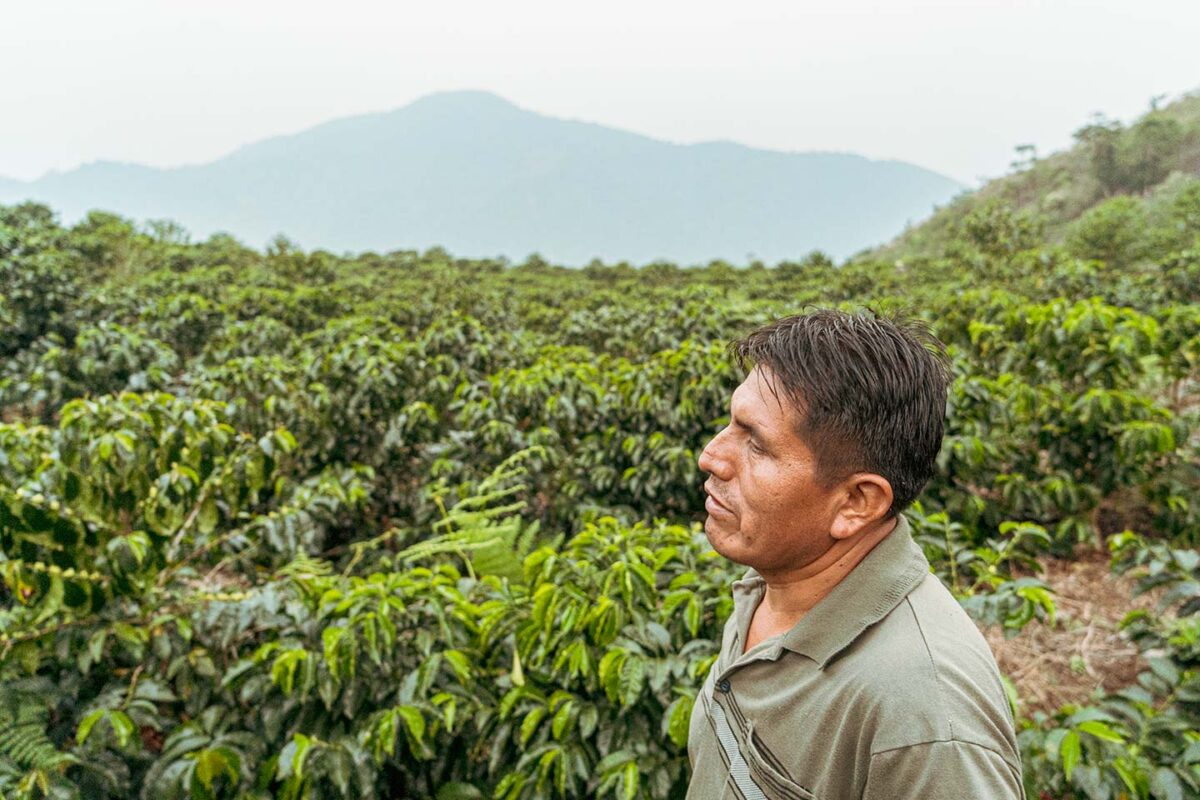
Celso David Mayta/ Finca Golondrina
I am very excited to report everything that has happened over the last year. Thanks to the investments, we were able to buy farmland in two areas in 2022. If we hadn’t been able to produce coffee this year, we likely would have been out on the streets, so I am incredibly grateful.
For the last couple dozen years, we had been working with a different company as our processing and export partner. However, there was internal trouble in the company due to unstable management caused by the pandemic, and we ended up losing both our wholesalers and market. We wanted to continue growing coffee on the land that the company had lent us, but when they requested a much higher fee than we’d previously agreed on, we had to abandon that idea and start searching for new land.
Our goal for 2023 is to increase both the quality and quantity of our coffee. I’d like to grow a variety of coffees including Geisha, Java, Catuai, and Caturra. This year, we are planning to distribute all of our yield through TYPICA.
I would be very grateful if the deposit scheme could be carried out long-term for the foreseeable future. Not only is it a way to stimulate production, but it also becomes an impetus for us to grow as producers. If I have the opportunity to be a part of this project again, I’d use the funds for human resources and employ more pickers.
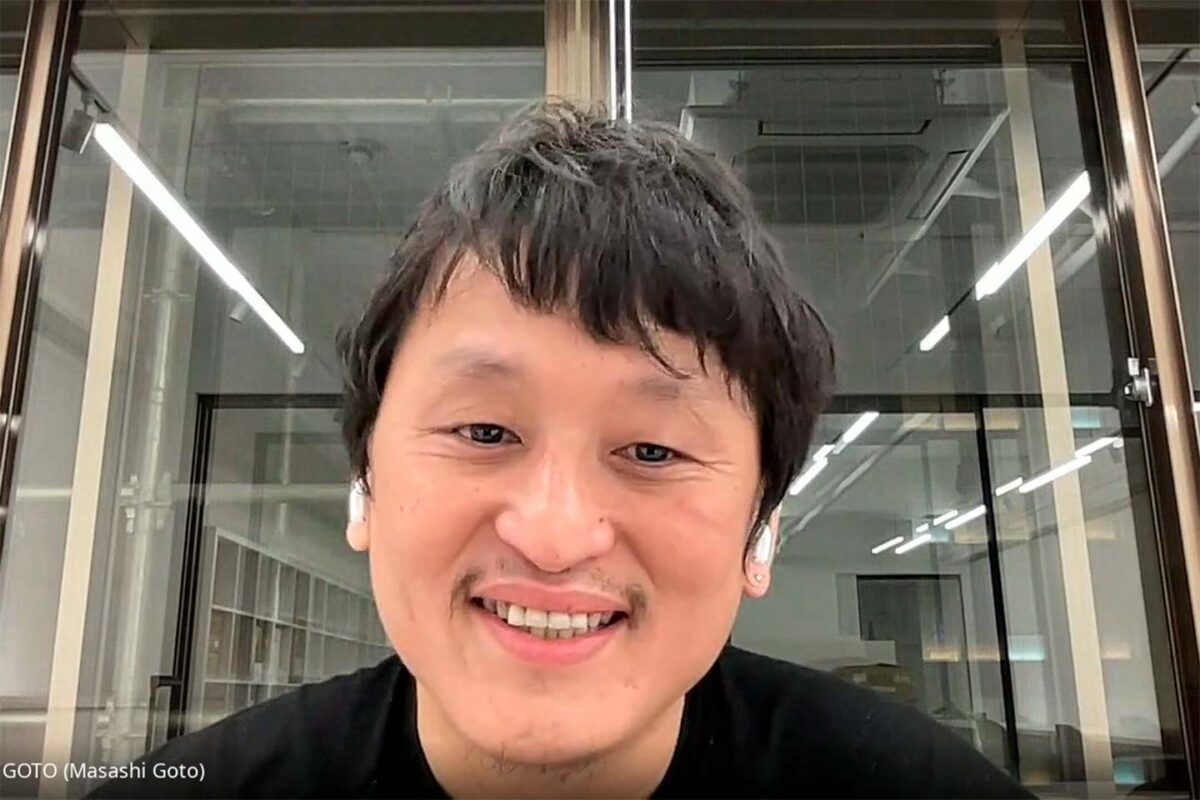
Comment from Masashi Goto, TYPICA’s Co-founder
“TYPICA’s goal is to become the world’s number one coffee market by 2030. Thus, we must be constantly updating our active imaginations to achieve this huge ambition. Part of this includes becoming a community that produces the world’s best coffee producers. Each of these producers will become the best in the world to each roaster. All of us here will become the best in the world to each other. That is the ‘best in the world’ that TYPICA is aiming for.
You are all the hope of the global coffee industry. In June, to further expand this venture worldwide, we will be launching a special team that is dedicated to exploring origin investment projects by building on our activities with you. We are also planning events where you will be able to meet the roasters who are buying your coffee face-to-face, so we hope you look forward to those opportunities. Let’s keep up this excellent work in 2023 and work together to make sure that you all become the best producers in the world.”